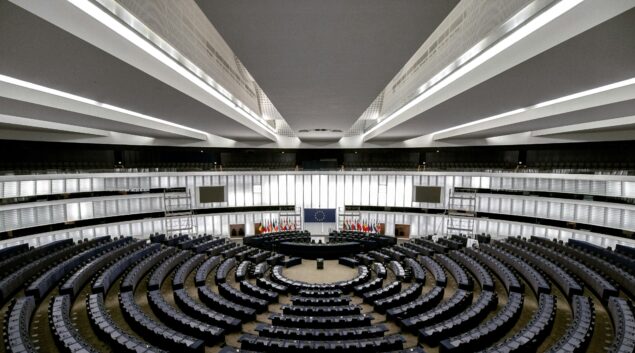
We have seen yet another twist in the tale of the Omnibus Proposal, which has effectively halted the Corporate Sustainability Reporting Directive (CSRD) and Corporate Sustainability Due Diligence Directive (CSDDD) for nearly a year now. To cut through the noise, we have broken down what the vote in the European Parliament means, where the negotiations currently stand, and what we may expect in the coming months.
With 309 votes in favour, 318 against, and 34 abstentions, the European Parliament (EP) rejected the mandate put forward by the Legal Affairs Committee (JURI) to begin trilogue negotiations on the Omnibus I simplification package, which means that the latest EP compromise is now back on the drawing table until the next plenary meeting in November.
The draft compromise proposed setting the CSRD threshold at 1,000 employees and €450 million in turnover, and 5,000 employees and €1.5 billion for the CSDDD.
The beginning of more simplifications or a window of opportunity
The EP’s rejection is a setback to achieving some long-awaited clarity after weeks of uncertainty over the scope of revisions. Yet it also creates a new opening – one that has been celebrated from both sides of the political spectrum, albeit for very different reasons.
On one hand, with the previous compromise now open for amendments, further simplification measures may be introduced. This push for deeper deregulation of sustainability reporting and due diligence requirements is largely backed by the European People’s Party (EPP) and right-wing groups such as the European Conservatives and Reformists (ECR), the far-right Patriots for Europe (PfE) and Europe of Sovereign Nations (ESN).
On the other hand, the setback also opens up for the opportunity to negotiate a more balanced Omnibus package. This direction is supported by the Greens/European Free Alliance (EFA), who seek to safeguard the integrity of Europe’s corporate sustainability frameworks.
What is likely to happen now?
As Parliament did not approve the accelerated legislative procedure, there is now an opportunity for further amendments to be proposed and for the position to be adjusted ahead of the next – and likely final – vote in plenary, scheduled for November 13th.
If a majority is reached on the revised position, this will constitute the mandate for trilogue negotiations to begin. Should the vote on November 13th be successful, the mandate for trilogue negotiations is expected to be formally granted in the final week of November 2025. While the goal is to negotiate the final legal text by the end of the year, negotiations may likely continue into early 2026.
In parallel, the European Financial Reporting Advisory Group (EFRAG), the European Commission’s advisor on financial and sustainability reporting matters, is due to present the amended European Sustainability Reporting Standards (ESRS) on 30th of November.
EFRAG has confirmed that this deadline will remain unchanged, despite the wheels of the Omnibus negotiations still being in motion.
The road ahead
The political volatility surrounding the Omnibus negotiations leaves many companies hesitant to act, resulting in stalled sustainability efforts as they wait for clearer signals on how the simplification measures will unfold.
If the CSRD and CSDDD are watered down, it would represent a costly delay in achieving unified reporting and due diligence standards. Still, disclosure expectations will continue to cascade down value chains, reaching smaller companies through their relationships with larger clients and investors.
If the political climate continues to deprioritise action on critical sustainability matters, the policy push may weaken, but the business and financial risks of inaction will only grow.
The European Central Bank and broader financial sector already recognise that climate risk is financial risk. As lenders and investors increasingly expect companies to disclose climate data and demonstrate resilience, voluntary reporting and risk management emerge as opportunities to future-proof access to capital and build trust with investors.
The companies that use this period to integrate risk management and show measurable climate progress will be far better prepared when the pendulum swings back toward stronger regulation and accountability.
Preparing for what comes next
For the broader sustainability agenda, the Omnibus situation highlights the need for corporate action independent of regulatory momentum. Companies and sustainability professionals must use this time to strengthen internal systems, governance, and their data, but not out of compliance pressure, but to understand their dependencies and capture opportunities.
At the same time, what companies need most now is clarity. Further delays risk deepening fatigue and slowing progress at a time when the cost of inaction continues to rise. Recent research shows that several of Earth’s life-supporting systems are under increasing pressure, with seven of the nine planetary boundaries now breached. For businesses and investors, this reinforces the importance of understanding how their activities depend on and affect these systems. The business case for action is clear, if you learn to look beyond the next quarterly review.
Want to get started or get further?
Nordic Sustainability is monitoring the Omnibus negotiations closely and will host a briefing session at the end of the year to share the latest state of play and practical implications.
If you’d like to understand how potential outcomes could affect your organisation, we’re happy to talk.
Contact our Managing Partner Anniina Kristinsson at akr@nordicsustainability.com or Regulation & Policy Team Lead Benjamin Brinch at bbr@nordicsustainability.com.




